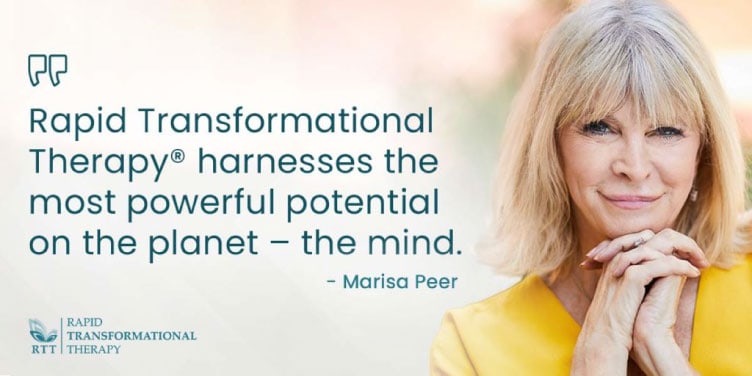No matter what you do, you can’t figure out how to stop thinking about someone.
Like a broken record, your mind keeps replaying thoughts of them over and over again. Mired in past memories and future projections, the thought of this person makes you struggle to concentrate on a task at hand. Whether it’s a love interest that doesn’t reciprocate your feelings or an ex you can’t get over, you want to get them out of your mind, and you want to do it right away.
Fortunately for you, once you start implementing some anti-obsession strategies outlined in this article, you can calm your mind and reclaim control over your thoughts, and your life.
Here is what we’re going to cover:
So, what does it mean when you can’t stop thinking about someone?
What Does It Mean When You Can’t Stop Thinking About Someone?

The reason you can’t stop thinking about someone is actually pretty simple; it feels great to spend time in that person’s company, and you simply want more of that good feeling.
When it comes to physical attraction and repetitive thoughts, the neurotransmitter dopamine is the one to blame. Dopamine has been dubbed as “the pleasure chemical.” It plays a pivotal role in generating feelings of want and desire.
Once the release of the “pleasure chemical” in your brain is tied to a person you’re attracted to, you are hooked on a “dopamine-seeking reward loop.”
This occurs when you’re reminded of the thing or person you desire. Each time you conjure a thought of the person, you get a small dopamine hit, setting the loop in motion.
The more dopamine hits you get, the more dopamine your brain wants, leading you to have more dopamine-inducing thoughts.
In other words, even if you don’t want to think about that person, your brain pushes you to think about them because it wants the dopamine hit.
Take note that dopamine is the same neurotransmitter that is released when taking addictive substances such as cocaine. So yes, it is possible to get addicted to someone.
As Marisa Peer, a best-selling author and motivational speaker on the topic of the power of the mind, states:
“Every thought you think causes a physical reaction and an emotional response within you.”
Dopamine, along with other neurotransmitters, will affect how you think, feel, and act.
The only way to reverse that loop is to learn how to consciously take control over your mind, so you are no longer at the mercy of your brain’s default reactions and chemical addictions.
In the next section, you will learn exactly how to stop thinking about someone by doing just that—taking control over your mind.
6 Expert-Approved Ways to Get Someone Out of Your Head

Generally, when you wondering how to stop thinking about someone, you tend to push the thoughts away or distract yourself from them in one way or another.
If you’ve ever tried that, you know that this is usually not a very successful strategy. Thoughts you are trying to avoid will likely bubble up to the surface with greater intensity sooner or later.
Here is what you can try instead:
1. Remember: “This too shall pass.”
In times of trial, it’s good to have a mantra that allows you to regain perspective.
Whenever you are in the throes of pain, trying to keep your head above water, remember this timeless wisdom: “This too shall pass.”
It may feel like those thoughts have been going on forever and you will never be free of them, but like all things in life, “This too shall pass.” No matter how bad it is, it always does.
If you had to break up with or let go of someone close to you for one reason or another, you know that, after a period of intense grief, eventually comes acceptance.
With time the memory fades, and all you’re left with is a heartfelt appreciation for those special moments you and that person had together.
In the same way, one day, you will look back at the experience you’re going through right now and smile with gratitude. You will be thankful for the valuable lessons you learned on your journey.
2. Stick to the facts
It’s not uncommon to romanticize old memories and remember them better than they actually were.
Take your life, for example; think back to a time when you broke up with someone and then idolized them because the only thing you could remember was their good qualities.
The truth is that our memory is far from perfect. More often than not, we have inbuilt biases that over-exaggerate someone’s good or bad traits when we think of them retrospectively.
Your mind’s tendency to distort old memories as well as present perceptions could take over your headspace quite easily.
This can make it very hard to let go of someone because you end up feeling like you’re losing something irreplaceable.
Fortunately, you can counter your mind’s biases by focusing your attention on the facts.
If you find yourself idealizing a past relationship or your current crush because all you can think of is positive memories, challenge those idealized perceptions. For every good memory or perception, try finding a negative one to balance things out.
For example:
If you find yourself looping on thoughts of your ex, thinking something along the lines of: “They were so perfect. I’ll never find anyone else like them,” try challenging that thought.
What exactly made them so amazing? Get as specific as you can about the characteristics that made you so attracted to your ex in the first place.
You’ll realize in time that all the characteristics you specified are rarely—if ever—so unique that you can’t find someone else with similar traits.
Your goal is to bring your mind as close to the truth and see things as objectively as possible because nothing is ever black or white—it’s both.
3. Write it all out
Journaling is an incredibly useful way of organizing your thoughts and getting more objective about your situation. Journaling is a great way to have a conversation between you and you.
Yes, you read that right; you can capture a conversation between different parts of you: your emotional self and your rational self.
This can provide you with unexpected insights and a sense of clarity that can only be accessed by diving deep into your subconscious mind.
How to do it?
Start by sitting with the feelings and trying to simply observe them.
Don’t judge them as good or bad, pleasant or unpleasant; simply be like a “fly on the wall”—completely unbiased about the emotional content, but curious to investigate it.
As you feel your sensations, try verbalizing what those feelings are trying to tell you.
For example:
Emotional Self: “I wish I could just turn back time and fix it. If I only didn’t say those hurtful things, everything would be different today. Oh, why am I so stupid? I had such a great connection with them; it was all my fault. I will never meet someone like that again and will always be alone.”
Then follow up with a response coming from your “rational self.” As we mentioned earlier, sticking to the facts can help balance things out.
Your rational self is the one that has the ability to look at things in a calm and collected manner, and is capable of nurturing and supporting the emotional self.
Rational Self: “You know it would never work out, right? You both were not ready for a serious commitment and had some growth to do first. So take it for what it was—a lesson.
“The only reason you are still obsessively thinking about them is that you don’t believe you are able to fulfill yourself alone as an independent person. However, that is not true; you were fulfilled before the relationship. You are enough on your own.”
Take a moment to reflect on your journaling.
As yourself, what are the key messages your emotional self tried to communicate? What feelings were you experiencing and why? What stories are you telling yourself? Finally, what are you afraid of?
4. Stay mindful

Did you know that if you find yourself boarding a train of thought that leads you to “depression town,” you can proactively refuse to get on it?
If you are like most people, you might think that the best way to stop your thoughts from wandering to a bad place is to ignore them and sweep them under the rug. This is hardly ever a long-term solution.
As a matter of fact, over time, you’re more likely to experience an overflow of negative, bottled-up emotions. If you don’t deal with them in a healthy way, they are likely to abruptly explode when you least expect it.
When you are learning how to stop thinking about someone, don’t try to suppress those thoughts or judge yourself for having them; it only makes those thoughts grow stronger.
This may sound counterintuitive but try to wrap your head around this idea: “Whatever you resist, persists.”
Your subconscious mind doesn’t understand the word “no.”
If you tell yourself: “I shouldn’t be thinking this,” your mind gets the message: “I should be thinking more of this!”
Why?
As Marisa Peer, a world-renowned therapist with over three decades of experience, noted in her “rules of the mind.”
“Your mind does not recognize neutral words such as ‘don’t,’ ‘can’t,’ ‘no,’ ‘not,’ ‘later,’ ‘maybe,’ ‘tomorrow.’”
Stop judging yourself and resisting those thoughts. Try to pay attention when your mind is wandering and simply notice when it goes into “negative thinking territory” instead.
How to practice it:
1. Next time you notice unwanted thoughts, pause and observe them. Realize that you are thinking. Your mind is constructing images and words that cause you to have an emotional reaction. You unconsciously resist these reactions, instead of letting them be.
2. Switch your focus from your thoughts to your surroundings; if you are sitting in a room, look at what’s in front of you, experience it and simply be with yourself fully.
3. Become aware of your breath and sensations in your body, as well as any of your five sense perceptions. What can you see, hear, smell, touch, or taste in this present moment?
4. Follow up with a consciously chosen, positive thought or behavior. Maybe start thinking about your upcoming holidays, or better yet, make plans for how you are going to spend them.
5. Remove all triggers
Whenever the relationship ends or an innocent crush turns into a toxic obsession, the first thing to do is to cut contact with the object of your desire as much as possible.
It might sound harsh, but as the old adage goes: “Out of sight, out of mind.”
When you are looking for ways how to stop thinking about someone, you need to stop seeing them, at least temporarily.
However, there’s more to it than simply avoiding this person’s presence. There are people, things, and places that are intimately attached to the memories of that person.
For example, if you have pictures on your phone, delete them.
A present they once gave you? Give it away or throw it in the trash.
Friends you once both hung out with? Consider taking a break from them to avoid triggering painful emotions that you may not be ready to face yet.
Last but not least: Social media.
You may not realize it yet, but every time you cave in to the urge to look at your past lover’s or that unavailable crush’s social media profile, you are re-energizing that painful desire that fuels your unwanted thoughts.
Make it easier on yourself and just pull the plug. Unfollow them, unfriend them, delete your text conversations, etc. When it comes to moving on, the no-contact rule is always the way to go.
6. Talk to a therapist

Even though surrounding yourself with friends and family is an important part of your letting go process, it often isn’t enough. Well-meaning friends and family members often have their own opinions, judgments, and preconceptions about how you should live your life.
While that is fine for the most part, you wouldn’t want other people’s uninformed opinions and judgments to dictate how you’re going to resolve your internal struggles.
In the same way you would call an IT specialist when your computer is broken, you would want to call a “mind expert” when you want to learn how to stop thinking about someone and you feel like your mind is not working as it should.
Shaping your mind can be difficult to do by yourself. It’s like being a sculpture and a sculptor at the same time. As Marisa Peer says: “What you feel is a result of the words and images that you construct in your mind.”
Unfortunately, your patterns of thinking and behaving are ingrained so deeply into your subconsciousness that they became part of you. This makes them nearly invisible.
Often, an obsession with someone is just a symptom of much larger, deep-rooted issues. In other words, doing it alone can take years of painful trial and error. There is still no guarantee that your mind will be fully healed.
If you want the recovery process to go smoothly and take little to no time, Marisa Peer’s Rapid Transformational Therapy® (RTT®) can benefit you immensely.
RTT® is a technique that combines different modes of psychotherapy with hypnotherapy, NLP, CBT, and neuroscience. As such, it is one of the quickest and most effective paths towards psychological well-being.
Connect with an RTT® therapist today and get this person out of your mind in the shortest time possible. Our RTT therapists were trained by Marisa Peer herself, and are experts in Rapid Transformational Therapy® with outstanding levels of client satisfaction.
They will guide you on your path towards healing the parts of your mind that cause you to obsessively think of someone. So be free, be strong, and reclaim your mind and life.



